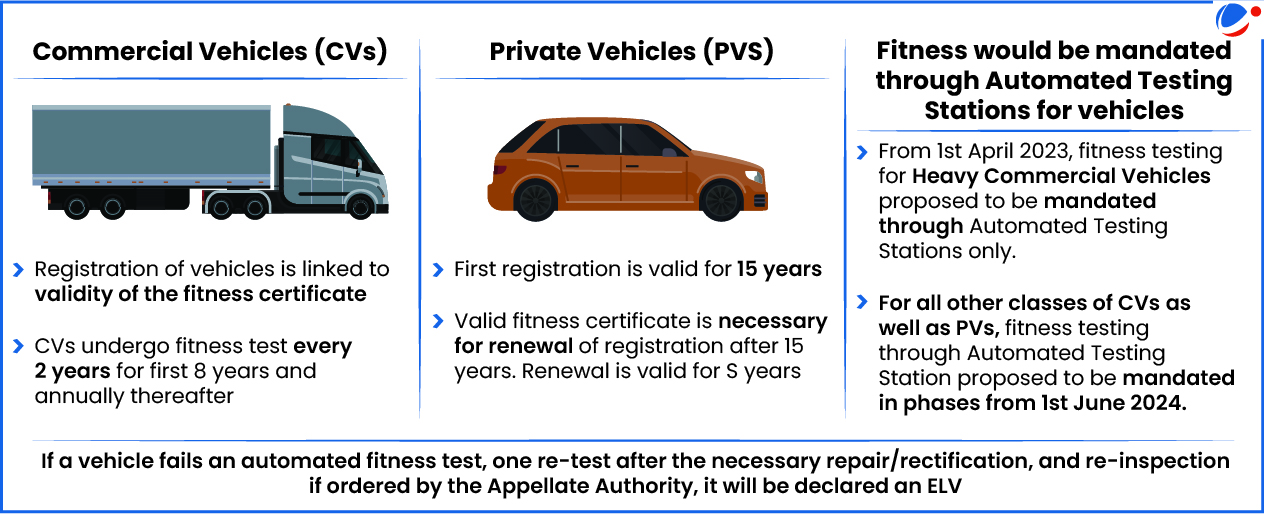The policy targets voluntary scrapping of unfit commercial and passenger vehicles strictly based on their fitness, irrespective of vehicle age.
- It phase out unfit polluting vehicles through Registered Vehicle Scrapping Facilities (RVSFs) and Automated Testing Stations (ATSs).
- Under this, Multiple Commercial and Passenger Vehicle Manufacturers would offer discounts for a period of two years and one year respectively against a Scrappage Certificate.

Significance of Vehicle Scrappage
- Reduce pollution: Scrapping current End-of-life vehicles (ELVs) cause 15-20% reduction in Vehicular emissions.
- 1 old car emits gases equivalent to 11 new cars while 1 old truck emits gases equivalent to 14 new trucks (MoRTH).
- Improve fuel efficiency: Leading to reduced maintenance cost.
- Ensure Formalization: Transforms the existing informal vehicle scrappage ecosystem.
- Availability of low-cost raw materials: For automotive, steel and electronics industry
- Others: Boost sales, generate employment etc.
Challenges with the Vehicle Scrappage in India
- Inadequate numbers of registered scrapping facilities: Presently, only sixty-plus (60+) RVSFs across 17 States / UTs and seventy-five (75+) ATSs across 12 States / UTs operational in the country.
- Dismantling and Disposal of hazardous wastes: Usually involving informal sector working without modern equipment posing environmental and health hazards.




